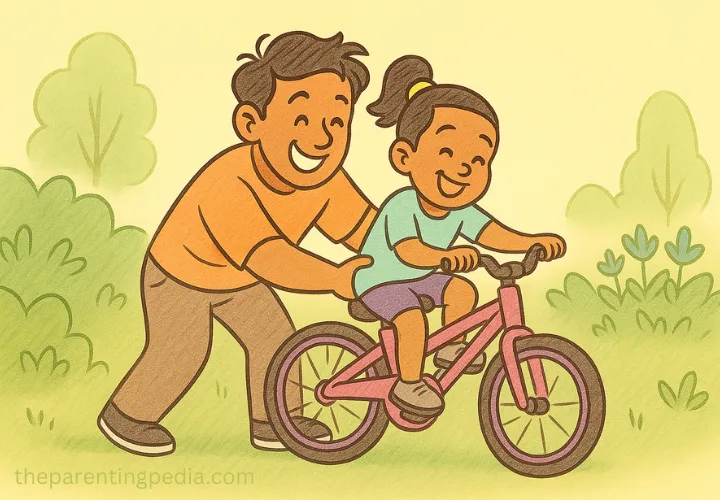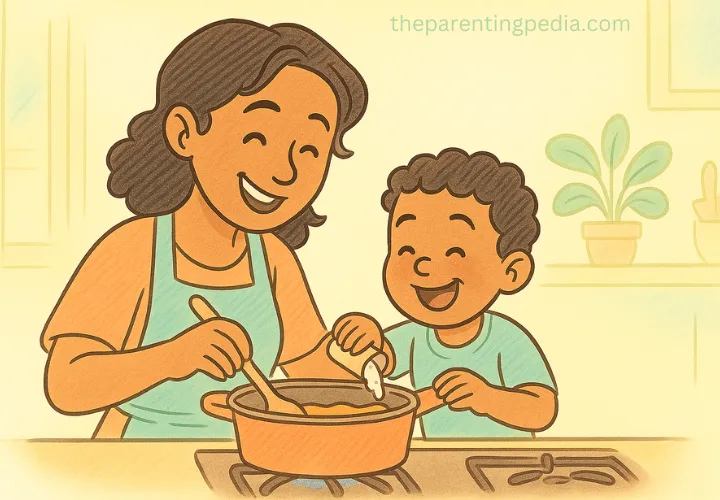Parenting is a journey filled with love, care and responsibility. When it comes to single parenting, the journey can become even more challenging and unique. A single parent is someone who is raising a child without the presence or support of a partner. This could happen due to many reasons like divorce, separation, death of a spouse or personal choice. There are both positive and negative effects of single parenting as it affects both parent and the child in different ways. In this article, we will explore positive and negative effects of single parenting to better understand the emotional, social and practical challenges as well as the strengths and positive outcomes that both the child and single parent may experience.
Positive Effects Of Single Parenting
Despite the challenges, single parenting can bring many positive outcomes for both the parent and the child. Let’s take a look at positive effects of single parenting:

1. Stronger Parent-Child Bond
In single parent families, the parent often spends more one on one time with the child. Without another adult in the household, the child may turn more often to the parent for comfort, support and guidance. This can build a strong emotional bond between the two. For example – A mother raising her daughter alone may share everyday tasks like cooking, studying and shopping. This daily interaction strengthens their relationship.
2. Greater Sense of Responsibility
Children in single parent homes often become more responsible at a younger age. Since they see their parent managing everything alone, they may be more willing to help with chores, manage their studies independently and understand the importance of teamwork. They learn that their actions matter and that they can play an important role in the family.
3. Independence and Confidence
Single parenting can teach both the parent and the child to be more independent. The parent learns to handle finances, work and parenting alone. The child learns how to adapt, solve problems and manage emotions. These skills can lead to greater self-confidence in the long run.
4. No Exposure to Parental Conflicts
In some families, children witness regular fights or unhealthy relationships between parents. In a single parent household especially after a divorce or separation, this kind of stress and tension is reduced. Creating a more peaceful and emotionally safe environment for the child will have positive effects of single parenting on child.
5. Flexibility and Freedom in Parenting Style
Positive effects of single parenting include single parents having freedom to raise their child based on their own values, without needing to compromise with a partner. They can make decisions quickly and adjust routines based on the child’s needs and their own lifestyle.
Negative Effects of Single Parenting
Alongside the positives, negative effects of single parenting can also bring difficulties and emotional strain. These can affect the well-being of both the parent and the child.
1. Financial Stress
One of the biggest challenges for single parents is financial pressure. Raising a child requires money for food, clothes, education, health and more. With only one income, it can be hard to meet all needs. This may result in stress, extra working hours or even debt. For example- A single father working two jobs may have limited time and energy for his child, even though his intentions are loving.
2. Lack of Support and Loneliness
Single parents may feel lonely or isolated, especially when there is no partner to share responsibilities, make decisions or offer emotional support. At times, they may miss having someone to talk to or lean on during hard days. Simple daily tasks like attending school meetings or managing a sick child alone can feel overwhelming.
Also Read: Identifying And Addressing Low Confidence In Kids
3. Emotional Pressure
Handling everything alone like work, home, childcare can lead to mental and emotional exhaustion. Single parents often worry about doing enough or feel guilty if they fall short. Some may also face anxiety or depression due to constant pressure. They may feel torn between providing financially and being emotionally present.
4. Less Time for the Child
Due to long work hours or household chores, single parents may struggle to spend enough quality time with their children. The child might feel neglected or lonely if the parent is always busy or tired. This can affect the child’s emotional development or behavior if not managed with balance.
5. Discipline and Decision Challenges
Without a partner to share parenting duties, setting rules and enforcing discipline becomes more difficult. The parent may either become too strict due to stress or too lenient out of guilt. Both extremes can affect the child’s behavior and development.
Effects Of Single Parenting On Children Emotionally
Children of single parents may feel confused, sad or angry especially during major life changes like divorce or the death of a parent. They may worry about their future, feel different from friends or blame themselves for family issues. But with love, patience and open communication, children can adjust and grow into strong, healthy individuals. Many kids from single parent families become resilient, mature and kind because of what they have gone through.
Ways Single Parents Can Manage and Succeed
Single parenting is hard but not impossible. Here are some ways to reduce the negative effects of single parenting and enhance the positive outcomes:
1. Build a Support System
- Stay connected to family, friends, neighbors or parent groups.
- Don’t be afraid to ask for help when needed.
2. Create a Routine
- Having a daily routine gives children a sense of stability and security.
- Plan family time, meals, study hours and sleep patterns with children.
3. Talk and Listen to Your Child
- It is important to make time for open and honest conversations with your child.
- Encourage your children to express their feelings without fear.
4. Take Care of Your Own Health
- Don’t forget to care for yourself physically and mentally.
- Take breaks, eat well and get enough rest when possible.
5. Use Community Resources
- Many organizations offer counseling, child care or financial help for single parents.
- Parents should not hesitate to explore the resources and support services available in their area.
6. Stay Positive and Patient
- Take time to celebrate small victories, as they help build confidence and strengthen the parent-child bond.
- Parents should focus on their strengths and always believe in their child’s potential to grow and succeed.

Conclusion
Single parenting is a journey full of highs and lows. While negative effects of single parenting can bring emotional strain, financial pressure and social challenges, positive effects of single parenting can also lead to stronger bonds, independence and resilience. The key lies in understanding both positive and negative outcomes and finding ways to manage the stress while enjoying rewards. Every family is different. What matters most is the love, care, and support that a parent provides to child whether they are alone or not. Children raised in single parent homes can also lead joyful, successful lives when they are nurtured with patience, guidance, and strong belief in their worth.
FAQ
What are the positive and negative effects of single parenting?
Positive effects of single parenting include building strong bonds, independence and responsibility in children. It also allows flexible decision making and a peaceful environment. However, negative effects of single parenting are financial stress, emotional strain, less time with children and social isolation. Balancing responsibilities alone can be challenging for single parent but also rewarding with support, patience and effective coping strategies.
What is the biggest issue with single parenting?
The biggest issue with single parenting is managing everything alone like finances, childcare and emotional support without a partner to share the load. This can lead to stress, exhaustion and limited time for the child. Balancing work and parenting often becomes overwhelming, affecting the parent’s well-being and the child’s emotional development.
